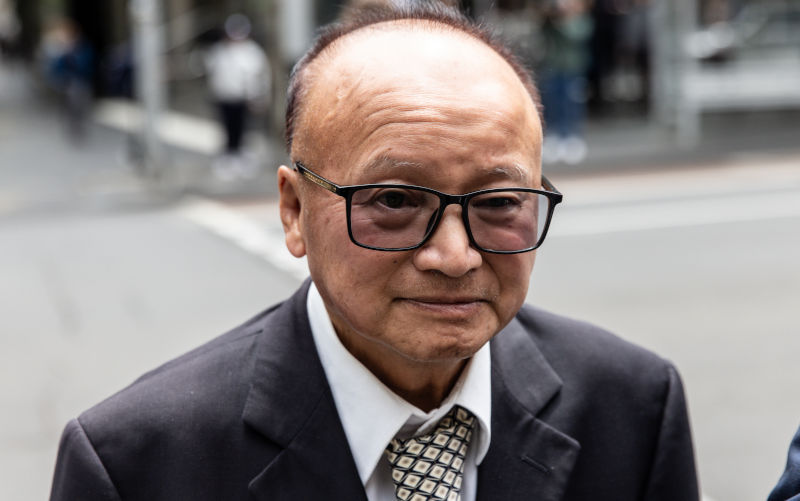As a member of the Chinese Australian community, the Di Sahn Duong trial is yet another one of those “Here we go again!” cases that disconcerts and exacerbates the subliminal anxiety we bear whenever Australia’s relationship with China sours.
Many of us breathed a sigh of relief when PM Albanese made a successful visit to China with promises on both sides to work towards a better relationship. Yet now we have to have another ethnicity loaded case foist upon us. This time, it is about a Chinese Cambodian man who raised money among his Indo-Chinese community, a sum of $37,450, to donate to the Royal Melbourne Hospital in June 2020. The money was said to be meant to assist in the prevention or relief of COVID19. It involved former federal Minister Alan Tudge. As reported in ABC News, the prosecutor Patrick Doyle said, “It’s not really a case about spies as such. It’s a case about a much more subtle form of interference. It’s about influence.”
To a lay person looking on it appears such a pity that someone making a contribution towards a charitable cause can be charged for endangering the security of his country of domicile. There appears to be two issues that have been compounded to make evaluation of the case difficult. Firstly, a contribution had been made that involved an important politician who the powers-that-be who initiated the charge assert is liable to be influenced by that act of generosity. Secondly, the person charged is said to have too close an association with a foreign government and its agencies that in recent years have had many geopolitical difficulties with our government. ABC News says: … Mr Doyle said Mr Duong was regularly in contact with CCP officials and intelligence officers, and attended United Front Work Department conferences in China.” The prosecuting officer, Mr Doyle, said that “the jury could draw the inference that Mr Duong was acting in the interests of the United Front Work Department when he involved Mr Tudge in the donation.” In order to make that inference, it has to be assumed that the politician or politicians so involved are free of any agency or culpability i.e. would they allow themselves to be influenced?
It is indeed almost impossible to comment intelligibly about the case without a background in law. However, there are concerning cultural conundrums that must be pointed out to moot the point that cultural understanding has an important role in a justice system. As the prosecutor said, it is about “influence”, a “subtle form of interference”.
The word “influence” is an abstraction that is difficult to define and understand in an equivalent manner across cultures. How difficult it is can be gauged from a part of the conclusion of a research paper written by Andreas Flache et al. from three major European universities, “While scholars agree that social influence is a strong force in social interaction, our review of the literature documented considerable variation across approaches on how to formally capture social influence on the micro-level, as well as about the macro-consequences arising from repeated social influence in networks. Nevertheless, we argued that a large part of the literature can be categorised into three classes of formal models, each of which is described by certain crucial assumptions about social influence on the micro level and characteristic predictions about emergent macro-dynamics.”
Apart from cross cultural conundrums, there are complexities associated with different professions across different cultures. As anyone familiar with business in Asia knows, it is the quintessential characteristic of a good business person to establish as many connections (something called “guanxi” in Chinese) as possible; and to buy as much influence as they can, especially in high political circles, so that they might come in useful when they are needed in the course of their business activities. The image is only complete if they are able to demonstrate a level of philanthropy. What he may not have understood was that soliciting or buying of influence within the Australian cultural context are carried out differently.
If I understand it correctly, the soliciting or buying of political influence is not entirely absent in an Australian political ecosystem. It is called “lobbying”, which I believe requires a very nuanced understanding of Australian political culture. The people who best understand how to lobby in the political and business areas are people who have worked within the government sector (read The Guardian “Defence officials turn lobbyists, sometimes only weeks after leaving government” Did Duong have enough understanding of the Australian ecosystem within which he attempted to build his network of “guanxi”?
The McCarthyistic connotations of China and its agencies among a sector of the Australian society is another concerning factor. Thus it is encouraging to read that Justice “Chadwick urged jurors to refrain from using the trial to judge the Chinese government and its international policies.” .
It was reported by The Guardian that former Victorian Liberal MP Robert Clark indicated that Duong sent him a list of ideas via email suggesting that Australia allows China to build its first high speed train and favouring China as a trading partner. Robert Clark described him as “very superficial and naive”. This indicates that there would be difficult tasks associated with the judging of character and intent which are difficult to make across cultures.
How the case will unfold would have major implications for the health of a multicultural society. Emperor Justinian in the 6th century AD is quoted by Ben Dupre (2013) to have said “Justice is the constant and perpetual will to render to others what is due to them”.
Rendering across cultures is truly a difficult task.
Teow Loon Ti was a researcher in aquaculture; and a teacher. Teow Loon Ti has a BSc.(Hon) in Zoology, an MA(Lit. & Comm.) and a PhD in Education.
